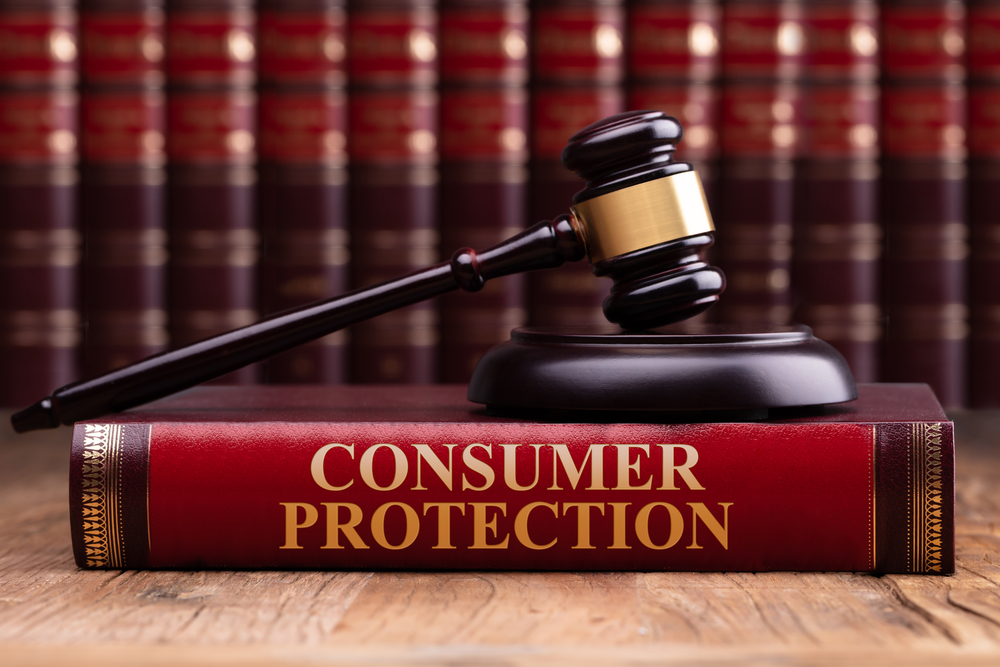Consumer Protection Reporting Credit Abuse: Know Your Rights
Credit is an essential part of modern life, enabling individuals to purchase homes, cars, and other necessary goods. However, with the increasing use of credit, there has also been a rise in credit abuse, including harassment by lenders and reporting of inaccurate credit data. Fortunately, there are federal laws designed to protect consumers from unfair credit practices. This article from Legal Marketplace CONSULTANT aims to provide comprehensive information on consumer protection against credit abuse, how to report such issues, and the steps consumers can take to defend their financial rights effectively.
Understanding Credit Abuse and Harassment
Credit abuse encompasses a broad range of unfair practices by lenders, debt collectors, or other credit entities. Harassment can take many forms, including repeated and aggressive phone calls, threats, false statements, or unauthorized sharing of personal information. Inaccurate reporting, on the other hand, involves the listing of false, misleading, or outdated information on your credit report, which can severely affect your credit score and financial future.
Examples of credit abuse include:
- Repeated phone calls at odd hours or excessive frequency;
- Threatening legal action not intended or authorized;
- Reporting debts that are not yours or have been paid;
- Failing to communicate in writing after a written request;
- Disclosing credit information to unauthorized persons;
- Using deceptive or unfair collection tactics.
Federal Protections for Consumers
The United States has several federal laws designed to protect consumers from unfair credit practices. These include:
- The Fair Debt Collection Practices Act (FDCPA) – prohibits abusive debt collection practices.
- The Fair Credit Reporting Act (FCRA) – regulates the accuracy, fairness, and privacy of information in the files of consumer reporting agencies.
- The Consumer Financial Protection Bureau (CFPB) – serves as a federal agency that enforces federal consumer financial laws and takes complaints from consumers.
These laws work together to ensure that consumers are treated fairly. For instance, if a lender reports inaccurate data, the FCRA gives you the right to dispute it, and the lender must investigate the dispute. The FDCPA limits how and when a debt collector may contact you, and the CFPB provides a channel for consumers to report abuses and seek remedies.
How to Respond to Credit Abuse and Harassment
If you are experiencing credit abuse or harassment, it is crucial to take immediate and clear steps to protect your rights and financial standing.
Here are important actions you should consider:
- Keep Detailed Written Records: Document all communication with lenders or debt collectors, including dates, times, names of representatives, and the content of conversations.
- Send Written Requests: If you face harassment or inaccurate reporting, send a written request to the creditor or debt collector asking them to stop harassment or correct errors.
- Dispute Inaccurate Information: File a dispute with the credit reporting agency where the inaccurate information appears. You can also send a dispute directly to the creditor.
- File a Complaint with the CFPB: The Consumer Financial Protection Bureau accepts complaints against lenders and credit reporting agencies. Visit their website or contact them directly to file your complaint.
- Seek Legal Assistance: If your rights are being violated, consider consulting with a qualified attorney who specializes in consumer credit law.
Filing a Complaint with the Consumer Financial Protection Bureau (CFPB)
The CFPB plays a fundamental role in defending consumers against credit abuse. Here’s how you can file a complaint effectively:
- Gather Documentation: Collect all relevant documents, such as credit reports, communication records, billing statements, and any evidence of abuse or inaccuracies.
- Visit the CFPB Website: Go to the official website at www.consumerfinance.gov/complaint to start the process.
- Provide Complete Information: Fill out the complaint form with detailed information about the creditor or debt collector, the issue, and the relief you are seeking.
- Submit Your Complaint: After finalizing the form, submit it through the website. The CFPB will forward your complaint to the company and keep you updated on responses.
- Follow Up: Keep monitoring your complaint status and any responses from the creditor. Take further steps if necessary.
The Importance of Maintaining Detailed Records
One of the most critical steps consumers can take to protect themselves from credit abuse is keeping detailed written records. Documentation helps substantiate your claims and can be invaluable should you choose to escalate the matter legally or through regulatory agencies.
Best practices include:
- Recording dates and times of phone calls;
- Saving copies of letters, emails, and any written communication;
- Noting the names and roles of individuals you interact with;
- Retaining copies of credit reports and dispute responses;
- Documenting any payments made or agreements reached.
Standing Up for Your Financial Rights
Taking an active role in defending your credit rights is empowering and essential for maintaining financial control. Credit abuse can have long-lasting negative impacts on your credit score, your ability to obtain loans, and your overall financial health.
By understanding the laws that protect you, knowing how to report abuses, and seeking appropriate help when needed, you ensure that your financial future is safeguarded. Remember that you are not alone; federal agencies like the CFPB are dedicated to supporting and protecting consumers.
When to Seek Professional Legal Help
While many issues can be addressed through direct communication with lenders or reporting agencies, some situations require expert legal intervention. If you experience persistent harassment, significant financial harm, or complex credit disputes, consulting with an attorney specializing in consumer credit law is advisable.
Legal professionals can:
- Advise you on your rights and options;
- Assist in drafting formal disputes and communications;
- Represent you in negotiations or court proceedings;
- Help ensure compliance by lenders with federal laws.
If you require legal assistance, reach out through the contact details provided in the bio section or send a private message to Legal Marketplace CONSULTANT for professional guidance.
Protecting yourself from credit abuse is vital to securing your financial wellbeing. Federal laws exist to shield consumers from unfair credit practices, and agencies like the CFPB offer mechanisms to report violations and seek remediation. Maintaining detailed records and understanding your rights enables you to stand firm against harassment and inaccuracies on your credit report.
When necessary, do not hesitate to consult qualified legal professionals to ensure your rights are fully protected. At Legal Marketplace CONSULTANT, we are committed to assisting consumers in navigating credit challenges effectively to uphold their financial control and peace of mind.
Legal Marketplace CONSULTANT is a trusted legal service provider specializing in comprehensive consumer protection, credit law, and financial rights advisory. Our expert team comprises experienced attorneys, legal consultants, and financial advisors dedicated to safeguarding your interests in credit-related matters.































